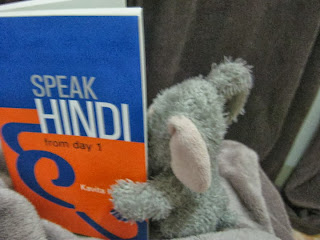If you’ve ever called an offshore call center that sounds like a busy street market, ringing with the sounds of a foreign language, you can bet your Tuesday lunch there is a tight lipped ex-pat in the background, making throat-slashing gestures at the offenders in vain.
3 and a half years ago, I landed in the Philippines in a semi-provincial area to work in a call center creating training materials, coaching, and training front line reps on communications, soft skills, and language. The job was extremely challenging, the support pretty nonexistent, and the hours were hell. My desk was in the middle of the production floor, an area we semi-affectionately called “the Dungeon”. All of these challenges paled in comparison to the looming obelisk that blotted out the sun: EOP.
EOP was the acronym for “English Only Policy”. It makes sense to ask and require reps to speak only English at work and on the production floor. What was next to impossible was getting them to do it.
I tried email reminders. I tried bribes. I tried “catching people doing the right thing.” We created slogans and had a contest. We printed tee shirts. I created a campaign of emails with illustrations (beloved, yet completely lacking in impact) called “EOP Stars” which featured people of Filipino extraction or origin who made their careers on English—people like Bruno Mars, Apple d.App, and Josie Natori.
The communications team as a whole tried meetings -one of which was held with the entire 200 person production team- where I held up ominous bar graphs showing a decline in our customer satisfaction score with an increase in our floor size (meaning our floor walkers couldn’t physically get to all of our agents and remind them to zip it). We tried threats, keeping score, and as a last resort, embarrassing the offenders in front of everyone. We created reminders called “Background noise K.O.” that explained we would grade any call in which background noise was captured a “0” in Quality. We wrote people up and reported offenders to the powers that be.
Nothing could budge people from their desire to speak in what we (wrongly) called “vernacular” no. matter.what.
I spent a HUGE amount of time trying to understand this. English is the accepted language of worldwide business, most likely closely followed by French, Chinese languages, Hindi, and Arabic. Filipino (and the local dialects) doesn’t even make the top ten! For ambitious young professionals, accent- free or “neutral” English was a marker of success and class. So why were our reps so resistant to speaking in English?
After more than 3 years living with and working with Filipinos, I have only guesses.
My first guess would be the intense, almost maniacal national pride that Filipinos have for their people and heritage. With few natural resources, a history of occupation and struggles, and widespread poverty, national pride in the people themselves as a kind of living museum is a must. Tee shirts with the slogan “The Filipino is worth dying for”/ “100% Filipino” and other such lines that celebrate the people of the islands (rather than, say amber waves of grain, or purple mountains majesty) were very popular. Language is a part of culture and heritage, which I (humbly) submit was ignored or bulldozed for many years (first by the Spanish, then by the Americans, now by the business world at large).
My second guess is that it’s a combination of a) never really finding the right motivator and b) the transient nature of front line call center work means that the talent pool tends to be young, carefree, and not super serious. Having fun with friends and finding romance were reasons people came to work, rather than “career advancement” or “financial independence.”
My third guess hinges on something that I will most likely never understand fully: culture. The bonds of interdependence and connection between family and friends are so tightly woven that for some, speaking English instead of the local dialect feels like a kind of betrayal, a kind of show of arrogance. And when it came time to choose between a seatmate who loaned them money, showed them sympathy when they were down, hooked them up with a cutie they knew, and was just generally there for them and speaking English: no contest. Speaking English could at best mark you as an upstart, at worst get you a freeze out. The “cool kids” in the account actually put on a heavy accent to speak English, and you can imagine the trickle-down effect this kind of thing had!
I left that town never really knowing what I could have done to make a lasting difference, and wondering if maybe the initiative itself was somehow beside the point. Was EOP just another misguided effort to standardize something that should not be standardized—akin to what happened to the U.S’s indigenous peoples in the 1800’s? Or was it really ‘for their own good’?
I leave it to you to ponder.





This was a real eye opener for me. I have been searching and searching for ideas on how I can enforce the EOP on my production floor here in the Philippines, and this explains why it is such a difficulty. As the Communications Coach/English Trainer for my company, I felt like Naomi Kelsey was personally reading my mind.